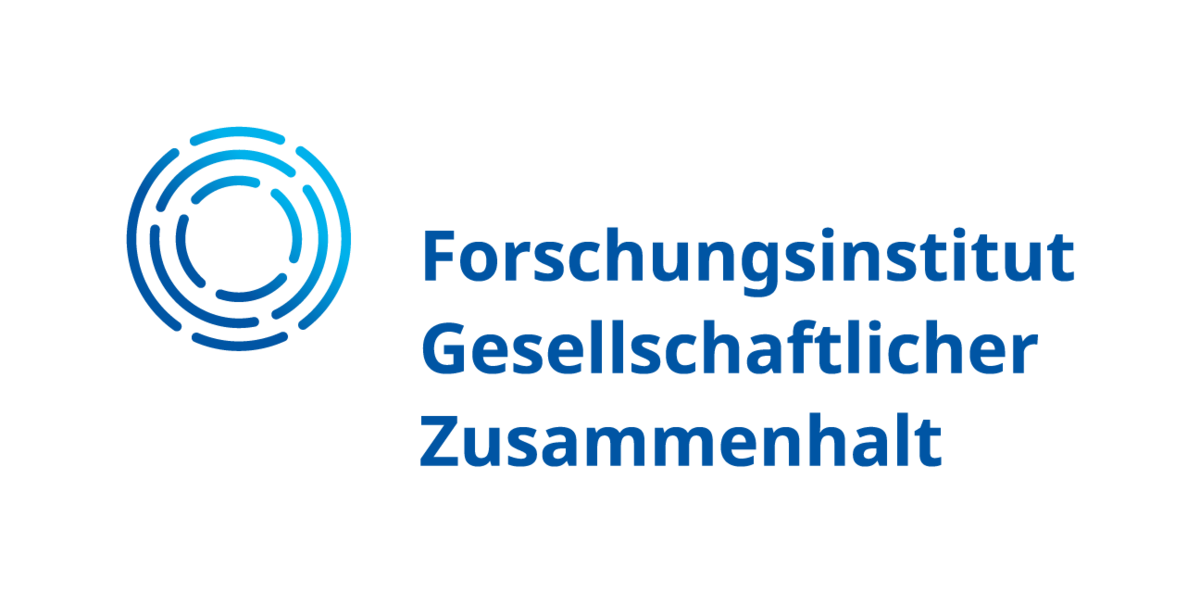History of the Federal Ministry of Finance and financial policy after 1945
The research group is dedicated to the history of the Federal Ministry of Finance since its creation and analyzes central fields of action of German financial policy after 1945 in a European and global context.
Cooperators:
Hans-Peter Ullmann (Sprecher, Köln), Ulrich Herbert (Freiburg), Stefanie Middendorf (Jena), Alexander Nützenadel (Berlin), Werner Plumpe (Frankfurt), Laura Rischbieter (Konstanz), Andreas Wirsching (München), Reimut Zohlnhöfer (Heidelberg).
Funding Body:
BMF
Project Period:
2024-2028
Project Staff:
Falco Drießen

The Research Institute Social Cohesion (RISC)
The Research Institute Social Cohesion (RISC) is an alliance of eleven university institutes and research bodies, which are located in ten different federal states and – as a consequence – are also looking at the regional diversity of social cohesion in Germany. Funding for the RISC has been provided by the Federal Ministry of Education and Research since 1 June 2020. Together, more than 100 researchers from a large number of different disciplines use empirical studies and large-scale comparisons to develop practical approaches that contribute to meeting current social challenges.
In Konstanz, we are taking a consistent social and cultural science orientation. We are primarily interested in the origins of social cohesion and the conditions under which it evolves. Our researchers do not isolate any cultural dimensions in the narrower sense but instead observe them in their interaction with socio-economic, political and institutional factors. This is where our cultural studies approach makes a real contribution to the research alliance as a whole.
Project Prof Dr Laura Rischbieter:
In the Service of the State
Funding Body:
BMBF
Project Period:
2020-2024

Scientific Network "Doing debt. Praxeology of sovereign debt in the long 20th century"
The network. conducted by Prof. Dr. Julia Laura Rischbieter (University of Konstanz) and Dr. Stefanie Middendorf (University of Halle-Wittenberg), studies practices of sovereign debt in historical perspective. It focusses on concrete procedures, situational decisions, and actor relations within politics of debt throughout the long twentieth century, and puts special emphasis on their significance for the negotiation of shifting boundaries between „the state“ and „the market.“ By doing so, it intends to avoid the deterministic view taken in many academic debates so far and to add specific insight into historical connections between financial practices, social knowledge, and economic effects.
The network draws on the recently broad praxeological discussion in cultural studies and the social sciences, relating to its sensitivity for informal behaviour, for the materiality of practices, and for the intrinsic logics of actor knowledge. The respective meanings of sovereign debt in the past, and the effects of public debt management since the late 19th century is situated within moments of decision-making – rather than understanding them as calculable effects of theoretical models or conceptual orders.
The interdisciplinary exchange between history, economics and social sciences thus shall enable a more sophisticated study of debt practices that takes their complexity and inconsistency into account. It aims at understanding and explaining the processual character and historical change of everyday (political) handling of public debt. For further information on the network and its research please consult the network's homepage.
Funding Body:
DFG
Project Period:
2017-2023
The Janus Head of Capitalism. Sovereign Debt as a Norm and Point of Crisis after 1945
Laura Rischbieter's current research project, entitled The Janus head of capitalism. Sovereign debt as a norm and point of crisis after 1945, focuses on economic crises triggered by illiquidity of states. However, the objects of inquiry are first the expectations and concepts on which the contemporaries tried to reorganize the global economy, secondly the conflicts around their normative and power-political arrangement and thirdly the attempts of the international financial players to handle the economic consequences. Thus, sovereign debt and individual debt crises will not merely be analyzed as the result of macroeconomic constraints or exceptional social and economic events, but will be conceptualized as a history of economic thoughts, political decisions, power relations, and social repercussions.

DFG Research Project in the Context of the Priority Programme «Erfahrung und Erwartung. Historische Grundlagen ökonomischen Handelns»
Limited by Myopia? Economic Uncertainty and the International Regulation of Sovereign Debt in Times of Crisis (1970-1997)
Financial crises, like all crises, produce situations that demand forward-looking decisions. The September 2008 decision to let Lehman Brothers fail, for example, is now widely seen as the start of an international crisis of trust in the financial industry. From today’s perspective this political decision of the regulators may seem shortsighted. Those responsible (apparently) expect a very different outcome, but their analysis and decisions were limited by myopia. On what basis did the regulators form the expectations that led to their decision?
This project investigates how assumptions about uncertain economic situations develop, shape expectations about the future, and influence decisions. Taking the case of international financial organizations (IFOs) it will investigate their approaches to crises of sovereign debt. Between the end of Bretton Woods (1971-73) and the Asian crisis of 1997-1998 there were 58 instances of default. As lender of last resort (IMF and the Bank for International Settlements), and agent of debt restructuring (Paris Club), de facto setter of standards (Clubs and Think Tanks), IFOs have played critical roles in such crises. Taking the perspective of international finance organizations and their approaches to sovereign debt crises the project design not only allows individual decisions to be analyzed as historically contingent cases but also permits an investigation of the ways in which the expectations of the actors involved in financial crises changed over time.
Economic sociology, hermeneutics and the sociology of knowledge will provide theoretical approaches for understanding the relationship between expectation formation, crises, and social learning. Case studies of foreign debt crises will be used to demonstrate and explain long-term developments but also breaches in expectation formation.
- Funding Body:
DFG
- Project Period:
2016-2021
- Project Staff:
